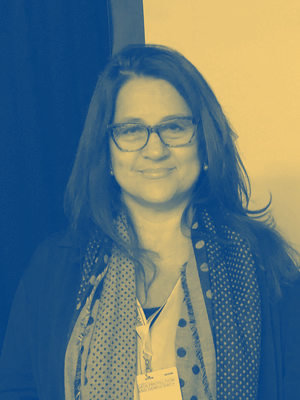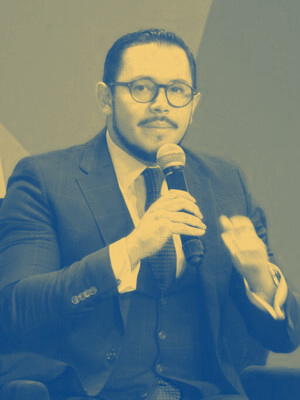Day 1 (17 April) Exploring commonalities, differences and data transfers in Latin America
9:30 – 9:45 Presentation of the Data Governance School LatAm (DGSL)
- Luca Belli, Professor and Coordinator CTS-FGV
9:45 – 10:00 Keynote presentation of the new Report of the UN Special Rapporteur for Privacy
- Ana Brian, UN Special Rapporteur for Privacy, Professor Universidad de Montevideo
10:00 – 11:20 Introductory session: Exploring the intersection of AI, Data Governance and Human Rights Protection
- Ana Brian, UN Special Rapporteur for Privacy, Professor Universidad de Montevideo
- Jonathan Mendoza, Data Protection Secretary, Mexican Data Protection Authority – INAI
- Nina da Hora, Directress Instituto da Hora
- Paula Vargas, Directress of Privacy Policy, Latin America, Meta
11:20 – 13:00 Presentations of regulatory frameworks of Brazil and Uruguay, discussing the normative and institutional features (rights, obligations, data transfers, automated processing of personal data etc) and analysing a key case study.
- Miriam Wimmer (Directress, Brazilian Data Protection Authority – ANPD)
- Gonzalo Sosa, Coordinator of the Data Protection Unit, Uruguayan Data Protection Authority – AGESIG
13:00 – 14:30 lunch and networking
14:30 – 16:00 Presentations of regulatory frameworks of Mexico and Colombia, discussing the normative and institutional features (rights, obligations, data transfers, automated processing of personal data etc) and analysing a key case study.
- Jonathan Mendoza, Data Protection Secretary, Mexican Data Protection Authority – INAI
- Nelson Remolina, Professor at Universidad de Los Andes, former Superintendent for Data Protection of Colombia
16:00 – 16:30 – Coffe break and Networking
16:30 – 18:00 Presentations of regulatory frameworks of Argentina and the Dominican Republic, discussing the normative and institutional features (rights, obligations, data transfers, automated processing of personal data etc) and analysing a key case study.
- Maria Julia Giorgelli, Defensoria del Pueblo de la Ciudad Autónoma de Buenos Aires
- Armando Manzueta, Director of Digital Transformation of the Dominican Republic
Day 2 (18 April) Emerging LatAm issues and case studies
9:30 – 11:10 AI Regulation and Algorithmic Discrimination
- Bianca Kremer, Visiting Professor and Researcher CTS-FGV
- Filipe Medon, Professor and Researcher CTS-FGV
11:10– 12:40 AI, Deep Fakes, and the right to image
- Filipe Medon, Professor and Researcher CTS-FGV
- Nina da Hora, Directress Instituto da Hora
12:40 – 14:00 lunch and networking
14:00 – 14:50: How to Regulate AI? Learning Lessons from Data Protection
- Luca Belli, Professor and Coordinator CTS-FGV
14:50 – 15:40: Data transfers in Latin America
- Pablo Palazzi, Professor and Director CeTyS
15:40 – 16:10: coffee break and networking
16:10 – 17:00 Case study: How does Mercado Livre deal with multiple-jurisdiction compliance.
- Frederico Boghossian Torres, Data Privacy Counsel, Mercado Livre
17:00 – 18:30 Case study: Exploring Collaborative Design for Privacy Control Experiences
- Adam Bargroff, Privacy and Public Policy Manager, Meta TTC Labs
Day 3 (19 April) Emerging global approaches to data governance
9:30 – 10:30 Neuro-Rights and Data Protection
- Bárbara Muracciole, Data Protection Delegate, Presidency of the Republic of Uruguay, Professor at Universidad de la Republica
10:30 – 11:30 The Chinese Data Governance Model
- Aifang Ma, Professor, Peking University and Researcher CyberBRICS
11:30 – 12:30 A Critical Information approach to Digital Public Infrastructure in India
- Smriti Parsheera, CyberBRICS non-resident fellow
- Manu Misra, Researcher, Center for Technology and Society
12:30 – 14:00 Lunch and networking
14:00 – 16:00 Exploring the intersection between Data Protection and Competition Law
- Nicolo Zingales, Professor and Coordinator eCommerce Research Group
- Juliana Domingues, Chief Prosecutor, Administrative Council for Economic Defense
- Maria Fernanda Viecens, Researcher at CETYS
16:00 – 16:30: Coffee break and networking
16:30 – 17:30 Regulatory Sandboxes for better Data Governance
- Lorrayne Porciuncula, Executive Director, Datasphere Initiative
17:30 – 18:00: Conclusion: wrap-up, takeaways and presentation of the UN IGF Data and AI Governance Coalition
18:00 – 19:00 Cocktail reception




















